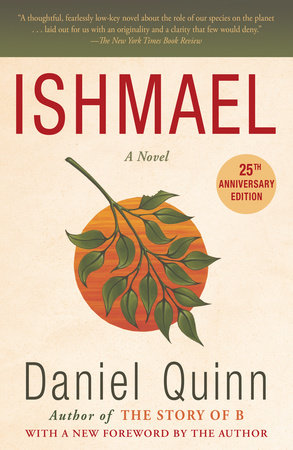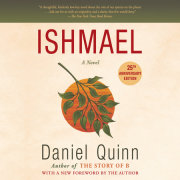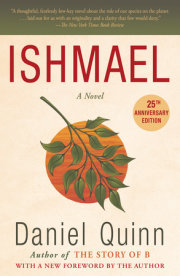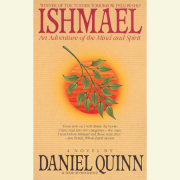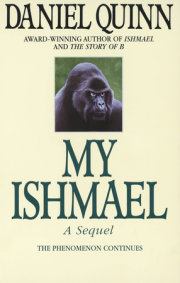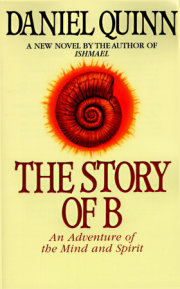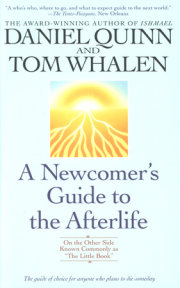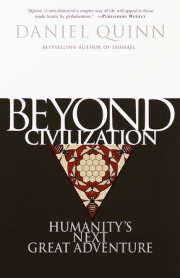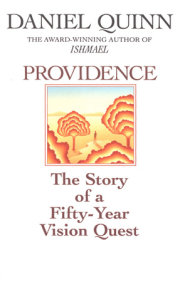1The first time I read the ad, I choked and cursed and spat and threw the paper to the floor. Since even this didn’t seem to be quite enough, I snatched it up, marched into the kitchen, and shoved it into the trash. While I was there, I made myself a little breakfast and gave myself some time to cool down. I ate and thought about something else entirely. That’s right. Then I dug the paper out of the trash and turned back to the Personals section, just to see if the damn thing was still there and just the way I remembered it. It was.
TEACHER seeks pupil. Must have an earnest desire to save the world. Apply in person.
An earnest desire to save the world! Oh, I liked that. That was rich indeed. An earnest desire to save the world–yes, that was splendid. By noon, two hundred mooncalfs, softheads, boobies, ninnyhammers, noodleheads, gawkies, and assorted oafs and thickwits would doubtless be lined up at the address given, ready to turn over all their worldlies for the rare privilege of sitting at the feet of some guru pregnant with the news that all will be well if everyone will just turn around and give his neighbor a big hug.
You will wonder: Why is this man so indignant? So bitter? It’s a fair question. In fact, it’s a question I was asking myself.
The answer goes back to a time, a couple decades ago, when I’d had the silly notion that the thing I most wanted to do in the world was . . . to find a teacher. That’s right. I imagined I wanted a teacher–needed a teacher. To show me how one goes about doing something that might be called . . . saving the world.
Stupid, no? Childish. Naïve. Simple. Callow. Or just fundamentally dumb. In one so manifestly normal in other respects, it needs explaining.
It came about in this way.
During the children’s revolt of the sixties and seventies, I was just old enough to understand what these kids had in mind–they meant to turn the world upside down–and just young enough to believe they might actually succeed. It’s true. Every morning when I opened my eyes, I expected to see that the new era had begun, that the sky was a brighter blue and the grass a brighter green. I expected to hear laughter in the air and to see people dancing in the streets, and not just kids–everyone! I won’t apologize for my naïveté; you only have to listen to the songs to know that I wasn’t alone.
Then one day when I was in my mid-teens, I woke up and realized that the new era was never going to begin. The revolt hadn’t been put down, it had just dwindled away into a fashion statement. Can I have been the only person in the world who was disillusioned by this? Bewildered by this? It seemed so. Everyone else seemed to be able to pass it off with a cynical grin that said, “Well, what did you really expect? There’s never been any more than this and never will be any more than this. Nobody’s out to save the world, because nobody gives a damn about the world, that was just a bunch of goofy kids talking. Get a job, make some money, work till you’re sixty, then move to Florida and die.”
I couldn’t shrug it away like this, and in my innocence I thought there had to be
someone out there with an unknown wisdom who could dispel my disillusionment and bewilderment: a teacher.
Well, of course there wasn’t.
I didn’t want a guru or a kung fu master or a spiritual director.
I didn’t want to become a sorcerer or learn the zen of archery or meditate or align my chakras or uncover past incarnations. Arts and disciplines of that kind are fundamentally selfish; they’re all designed to benefit the pupil–not the world. I was after something else entirely, but it wasn’t in the Yellow Pages or anywhere else that I could discover.
In Hermann Hesse’s
The Journey to the East, we never find out what Leo’s awesome wisdom consists of. This is because Hesse couldn’t tell us what he himself didn’t know. He was like me–he just yearned for there to be someone in the world like Leo, someone with a secret knowledge and a wisdom beyond his own. In fact, of course, there is no secret knowledge; no one knows anything that can’t be found on a shelf in the public library. But I didn’t know that then.
So I looked. Silly as it sounds now, I looked. By comparison, going after the Grail would have made more sense. I won’t talk about it, it’s too embarrassing. I looked until I wised up. I stopped making a fool of myself, but something died inside of me–something that I’d always sort of liked and admired. In its place grew a scar–a tough spot but also a sore spot.
And now, years after I’d given up the search, here was some charlatan advertising in the newspaper for the very same young dreamer that I’d been fifteen years ago.
But this still doesn’t explain my outrage, does it?
Try this: You’ve been in love with someone for a decade–someone who barely knows you’re alive. You’ve done everything, tried everything to make this person see that you’re a valuable, estimable person, and that your love is worth something. Then one day you open up the paper and glance at the Personals column, and there you see that your loved one has placed an ad . . . seeking someone worthwhile to love and be loved by.
Oh, I know it’s not exactly the same. Why should I have expected this unknown teacher to have contacted me instead of advertising for a pupil? Contrariwise, if this teacher was a charlatan, as I assumed, why would I have
wanted him to contact me?
Let it go, I was being irrational. It happens, it’s allowed.
2I had to go down there, of course–had to satisfy myself that it was just another scam. You understand. Thirty seconds would do it, a single look, ten words out of his mouth. Then I’d know. Then I could go home and forget about it.
When I got there, I was surprised to find it was a very ordinary sort of office building, full of second-rate flacks, lawyers, dentists, travel agents, a chiropractor, and a private investigator or two. I’d expected something a little more atmospheric–a brownstone with paneled walls, high ceilings, and shuttered windows, perhaps. I was looking for Room 105, and I found it in the back, where a window would overlook the alley. The door was uninformative. I pushed it open and stepped into a large, empty room. This uncommon space had been created by knocking down interior partitions, the marks of which could still be seen on the bare hardwood floor.
That was my first impression: emptiness. The second was olfactory; the place reeked of the circus–no, not the circus, the menagerie: unmistakable but not unpleasant. I looked around. The room was not entirely empty. Against the wall at the left stood a small bookcase containing thirty or forty volumes, mainly on history, prehistory, and anthropology. A lone overstuffed chair stood in the middle, facing away, toward the wall at the right, and looking like something the movers had left behind. Doubtless this was reserved for the master; his pupils would kneel or crouch on mats arranged in a semicircle at his knee.
And where were these pupils, who I had predicted would be present by the hundreds? Had they perhaps come and been led away like the children of Hamelin? A film of dust lay undisturbed on the floor to disprove this fancy.
There was something odd about the room, but it took me another look round to figure out what it was. In the wall opposite the door stood two tall casement windows admitting a feeble light from the alley; the wall to the left, common with the office next door, was blank. The wall to the right was pierced by a very large plate-glass window, but this was plainly not a window to the outside world, for it admitted no light at all; it was a window into an adjacent room, even dimmer than the one I occupied. I wondered what object of piety was displayed there, safely beyond the touch of inquisitive hands. Was it some embalmed Yeti or Bigfoot, made of cat fur and papier-mâché? Was it the body of a UFOnaut cut down by a National Guardsman before he could deliver his sublime message from the stars (“We are brothers. Be nice.”)?
Because it was backed by darkness, the glass in this window was black–opaque, reflective. I made no attempt to see beyond it as I approached; I was the spectacle under observation. On arrival, I continued to gaze into my own eyes for a moment, then rolled the focus forward beyond the glass–and found myself looking into another pair of eyes.
I fell back, startled. Then, recognizing what I’d seen, I fell back again, now a little frightened.
The creature on the other side of the glass was a full-grown gorilla.
Full-grown says nothing, of course. He was terrifyingly enormous, a boulder, a sarsen of Stonehenge. His sheer mass was alarming in itself, even though he wasn’t using it in any menacing way. On the contrary, he was half-sitting, half-reclining most placidly, nibbling delicately on a slender branch he carried in his left hand like a wand.
I did not know what to say. You will be able to judge how unnerved I was by this fact: that it seemed to me I should speak–excuse myself, explain my presence, justify my intrusion, beg the creature’s pardon. I felt it was an affront to gaze into his eyes, but I was paralyzed, helpless. I could look at nothing else in the world but his face, more hideous than any other in the animal kingdom because of its similarity to our own, yet in its way more noble than any Greek ideal of perfection.
There was in fact no obstacle between us. The pane of glass would have parted like a tissue had he touched it. But he seemed to have no idea of touching it. He sat and gazed into my eyes and nibbled the end of his branch and waited. No, he wasn’t waiting; he was merely
there, had been there before I arrived and would be there when I’d left. I had the feeling I was of no more significance to him when a passing cloud is to a shepherd resting on a hillside.
As my fear began to ebb, consciousness of my situation returned. I said to myself that the teacher was plainly not on hand, that there was nothing to keep me there, that I should go home. But I didn’t like to leave with the feeling that I’d accomplished nothing at all. I looked around, thinking I’d leave a note, if I could find something to write on (and with), but there was nothing. Nevertheless, this search, with the thought of written communication in mind, brought to my attention something I’d overlooked in the room that lay beyond the glass; it was a sign or poster hanging on the wall behind the gorilla. It read:
WITH MAN GONE,
WILL THERE
BE HOPE
FOR GORILLA?
This sign stopped me–or rather, this text stopped me. Words are my profession; I seized these and demanded that they explain themselves, that they cease to be ambiguous. Did they imply that hope for gorillas lay in the extinction of the human race or in its survival? It could be read either way.
It was, of course, a koan–meant to be inexplicable. It disgusted me for that reason, and for another reason: because it appeared that this magnificent creature beyond the glass was being held in captivity for no other reason than to serve as a sort of animate
illustration for this koan.
You really ought to do something about this, I told myself angrily. Then I added:
It would be best if you sat down and were still.
I listened to the echo of this strange admonishment as if it were a fragment of music I couldn’t quite identify. I looked at the chair and wondered:
Would it be best to sit down and be still? And if so, why? The answer came readily enough:
Because, if you are still, then you will be better able to hear. Yes, I thought, that is undeniably so.
For no conscious reason, I lifted my eyes to those of my beastly companion in the next room. As everyone knows, eyes
speak. A pair of strangers can effortlessly reveal their mutual interest and attraction in a single glance.
His eyes spoke, and I understood. My legs turned to jelly, and I barely managed to reach the chair without collapsing.
“But how?” I said, not daring to speak the words aloud.
“What does it matter?” he replied as silently. “It’s so, and nothing more needs to be said.”
“But you–” I sputtered. “You are . . .”
I found that, having come to the word, and with no other word to put in its place, I could not speak it.
After a moment he nodded, as if in acknowledgment of my difficulty. “I am the teacher.”
For a time, we gazed into each other’s eyes, and my head felt as empty as a derelict barn.
Then he said: “Do you need time to collect yourself?”
“Yes!” I cried, speaking aloud for the first time.
He turned his massive head to one side to peer at me curiously. “Will it help you to listen to my story?”
“Indeed it will,” I said. “But first–if you will–please tell me your name.”
He stared at me for a while without replying and (as far as I could tell at that time) without expression. Then he proceeded as if I hadn’t spoken at all.
“I was born somewhere in the forests of equatorial West Africa,” he said. “I’ve never made any effort to find out exactly where, and see no reason to do so now. Do you happen to know anything about animal collecting for zoos and circurses?”
I looked up, startled. “I know nothing at all about animal collecting.”
“At one time, or at least during the thirties, the method commonly used with gorillas was this: On finding a band, collectors would shoot the females and pick up all the infants in sight.”
“How terrible,” I said, without thinking.
The creature replied with a shrug. “I have no actual memory of the event–though I have memories of still earlier times. In any case, the Johnsons sold me to a zoo in some small northeastern city–I can’t say which, for I had no awareness of such things as yet. There I lived and grew for several years.”
He paused and nibbled absentmindedly on his branch for a while, as if gathering his thoughts.
Copyright © 1995 by Daniel Quinn. All rights reserved. No part of this excerpt may be reproduced or reprinted without permission in writing from the publisher.

